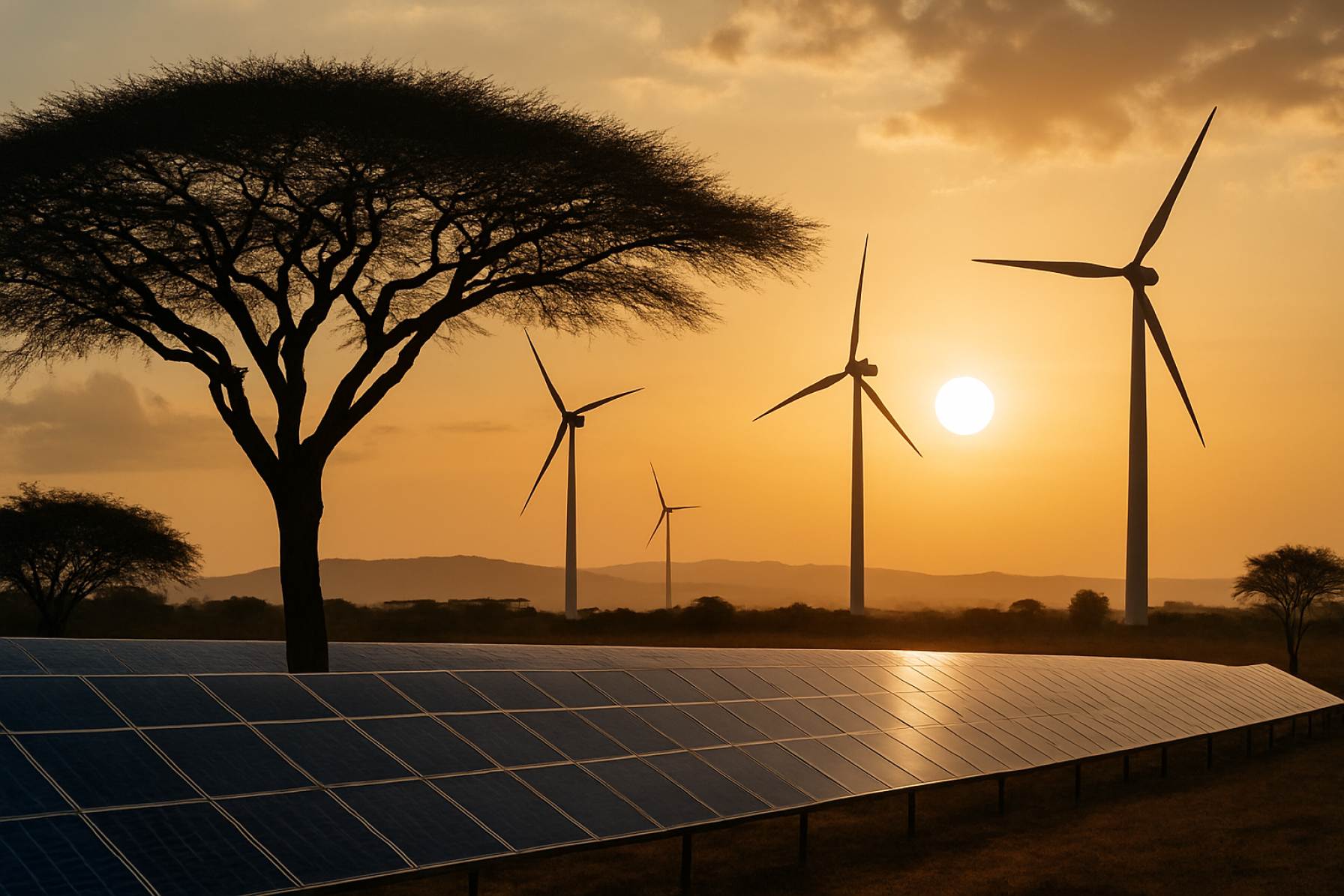Inside Africa’s $10 Billion Energy Revolution: Who’s Investing, What’s Changing, and Why 2025 Is a Make-or-Break Year
Africa’s energy sector is booming but still faces huge challenges. See the game-changing investments and key reforms shaping 2025 and beyond.
- 600 million Africans still lack access to electricity
- $10B invested by ExxonMobil in Nigeria alone
- 900 million without clean cooking fuel
- Record growth in gas and renewables projects across Africa in 2025
Africa’s energy future is balancing on a knife’s edge. With bold new investments flooding in from industry giants like ExxonMobil, TotalEnergies, and Eni, 2025 promises a critical turning point—but only if old barriers are smashed and financing bottlenecks overcome.
Why Are Big Investors Betting Billions on African Energy in 2025?
Powerhouse firms are pouring cash into Africa’s vast reserves. ExxonMobil’s jaw-dropping $10 billion venture in Nigeria headlines a surge of big-money projects across the continent. TotalEnergies is spearheading multi-billion dollar energy plays in Mozambique and Namibia, while Eni is unlocking gas assets in Libya and the Republic of Congo.
This optimism signals accelerating confidence in Africa’s role in the global energy landscape. However, the continent’s development needs are urgent—600 million people still live without electricity, and nearly a billion lack access to clean cooking options.
Explore more about Africa’s energy opportunities at Africa Energy.
What’s Blocking Africa’s Energy Boom?
While momentum is building, significant roadblocks remain. Red tape, sluggish approvals, and unpredictable regulations still strand dozens of major projects. Above-ground risks, from policy shifts to governance issues, threaten to slow progress.
Yet cracks of light are breaking through:
– Nigeria’s Petroleum Industry Act is creating clearer, investor-friendly rules.
– Angola’s fresh local content laws better balance incentives with local job creation.
– Ghana’s new tax policies are making upstream exploration more lucrative.
For timely updates, visit African Energy Chamber.
Q&A: Why Is Financing Still So Tough—And What Needs to Change?
Q: Why are banks and investors still hesitant about Africa?
Global economic volatility has hiked interest rates, squeezed available credit, and boxed out projects that don’t fit strict ‘green’ labels—even if they improve millions of lives.
Q: What’s the big ask from the African Energy Chamber’s Declaration?
They’re calling for the world’s definition of a “sustainable investment” to expand. Natural gas should count as a step toward lower emissions and broader energy access—critical for Africa’s reality.
Q: What can African governments do right now?
Reform, reform, reform. By shoring up their credit profiles, standardizing regulations, and making projects bankable, governments can attract urgent capital. The Chamber also urges a shift to private-sector-driven solutions with less reliance on state guarantees.
Check market shifts at Reuters and sector insights at Bloomberg.
How Can Africa Leapfrog to Energy Security by 2030?
– Embrace innovative finance: Tapping local capital markets and new investment vehicles is vital.
– Diversify energy sources: Combine traditional fuels with booming renewables for stability.
– Empower local players: Independent producers are more agile and resilient amid shifting global winds.
Energy access underpins health, education, industry and human dignity. For Africa, it’s non-negotiable.
Will 2025 Be Africa’s Breakout Year in Energy?
The next 12 months are set to redefine the continent’s future. As global narratives around climate and energy evolve, African nations must steer their own course—expanding access on their own terms and seizing the benefits for every citizen.
Stay tuned, get involved, and demand progress. Africa’s energy revolution is everyone’s story.
Checklist: Key Actions for Africa’s Energy Leap Forward in 2025
- 🔲 Prioritize policy and regulatory reform for investors
- 🔲 Expand the definition of sustainable investments to include gas
- 🔲 Mobilize local and international capital creatively
- 🔲 Strengthen private-sector energy systems
- 🔲 Center energy access in all development strategies
